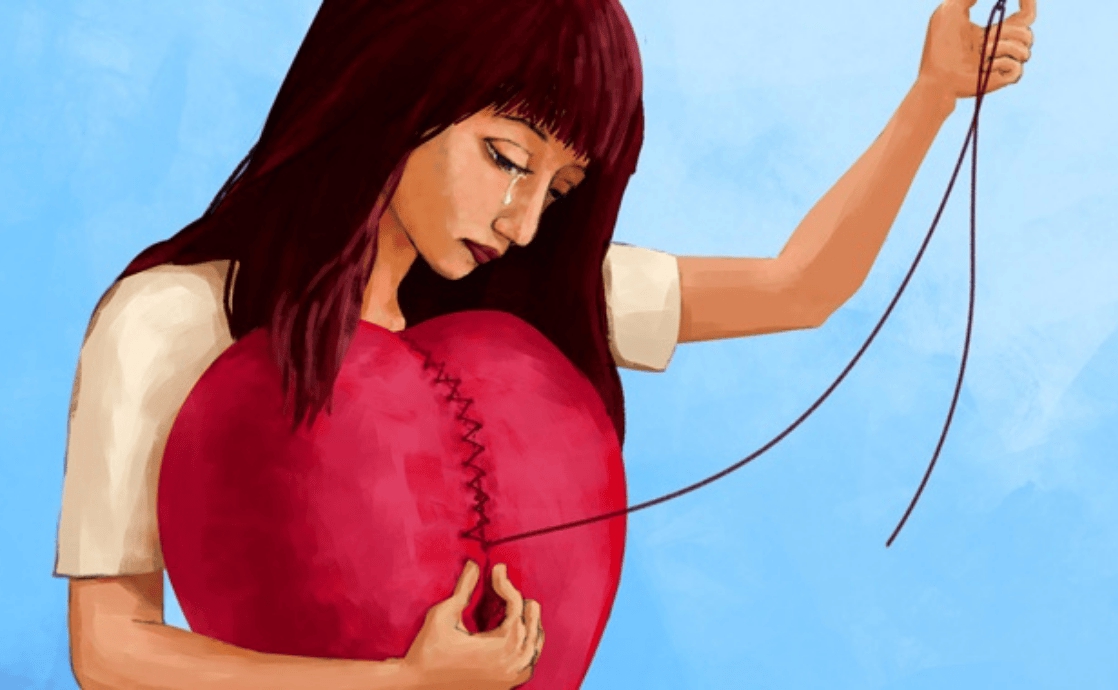The views expressed in our content reflect individual perspectives and do not represent the authoritative views of the Baha'i Faith.
“It must be exhausting to be [this tyrant],” my anthropology teacher once said during class while I studied abroad in London. My classmates and I were shocked.
We had just finished expressing our concerns over the fate of a country with a sexist, racist tyrant for a leader. My teacher noticed our shocked and somewhat judgmental expressions, and clarified: “It must be exhausting to hold so much hate in your heart.”
I paused to process my teacher’s comment and allow his message to sink in. In the years since then I have never forgotten that conversation. Hate, anger, resentment, jealousy, and other negative feelings are all heavy burdens to bear. They destroy our peace, well-being, joy, and if we’re not careful, our soul.
That’s why the Baha’i writings advise us to:
… concentrate all the thoughts of your heart on love and unity. When a thought of war comes, oppose it by a stronger thought of peace. A thought of hatred must be destroyed by a more powerful thought of love. Thoughts of war bring destruction to all harmony, well-being, restfulness and content. Thoughts of love are constructive of brotherhood, peace, friendship, and happiness. – Abdu’l-Baha, Paris Talks, p. 29.
I recently wrote an article called “The Hypocrisy of Frenemies,” which reflected on the hypocrisy and dishonesty of pretending to like people that you dislike. In the article, I shared excerpts from the Baha’i writings that highlight the importance of forgiving people who have hurt you, because the Baha’i teachings advise us to see our enemies as friends and to treat them as such.
After a close family friend read the article, she told me that it can be challenging to genuinely love hurtful people, and asked if I could write an article about forgiveness.
I immediately cringed, knowing fully well that forgiveness has never been my strongest virtue.
People were always cruel to me growing up. There were few years of school that I actually enjoyed, because while I may have soared academically, kids often wounded me emotionally. During elementary school, when I would try to talk to classmates at recess, they would tell me to stop following them. When I would try to play with them on the playground, they would ask me to leave because the “monkey bars were too full.” I faced so much rejection, exclusion, and isolation at such a young age that it crippled my confidence for a really long time. I began to suffer from extreme anxiety, and would freak out whenever family encouraged me to reach out to others or spend time with people I didn’t know. I felt emotionally damaged and I resented all of the people that hurt me because of it.
Finally, in high school I realized that by not forgiving, the only person I hurt was myself. One popular saying puts it this way: “holding onto anger is like grasping a hot coal with the intent of throwing it at someone else. You are the one who gets burned.” I realized that I needed to forgive all the people who hurt me, not necessarily because they deserved forgiveness, but because I deserved peace.
The Universal House of Justice, the global governing body of the Baha’i Faith, acknowledged how hard forgiveness can be, but reminded us that nursing grievances is “spiritually poisonous to the soul”:
To nurse a grievance or hatred against another soul is spiritually poisonous to the soul which nurses it, but to strive to see another person as a child of God and, however heinous his deeds, to attempt to overlook his sins for the sake of God, removes bitterness from the soul and both ennobles and strengthens it. – The Universal House of Justice, letter to an individual, 5 January 1992.
Forgiveness ennobles and strengthens our souls and helps us heal. After I reflected on this, I tried a variety of tactics to help me forgive and restore my confidence. I prayed, meditated, read self-help books, tried self-hypnosis, practiced getting out of my comfort zone, did Psych-K and neurolinguistic programming, wrote poetry to express my feelings, and practiced putting myself in others’ shoes and trying to understand their motives. Gradually, I healed and restored my confidence.
Of course, some people are easier to forgive than others, and there are some people that I am still struggling to forgive. Sometimes, you don’t realize you haven’t forgiven until you recall a memory that still causes you pain – which helps me understand why the Baha’i writings advise us to instantly forgive: “If someone commits an error and wrong toward you, you must instantly forgive him.” – Abdu’l-Baha, The Promulgation of Universal Peace, p. 453.
When we don’t instantly forgive, our anger or dismay can fester and grow. The longer we wait to forgive, the harder it gets. Someone once told me that when they have an issue with someone, they allow themselves 24 hours to deal with it, and then they force themselves to move on – which was really helpful for me to hear.
It can be especially healing to address concerns with the people who have hurt me to obtain closure and get an apology. Through meditation, I came to the conclusion that people often don’t think of the aftermath of their actions and don’t intend to hurt me. It isn’t exactly fair to harbor anger towards people who don’t even know what they did wrong. But above all, whether I can get closure or not, I remind myself that my spiritual growth requires forgiveness.
The Baha’i teachings tell us to love and forgive people for the sake of God and not themselves:
Love the creatures for the sake of God and not for themselves. You will never become angry or impatient if you love them for the sake of God. Humanity is not perfect. There are imperfections in every human being, and you will always become unhappy if you look toward the people themselves. But if you look toward God, you will love them and be kind to them, for the world of God is the world of perfection and complete mercy. Therefore, do not look at the shortcomings of anybody; see with the sight of forgiveness. – Abdu’l-Baha, The Promulgation of Universal Peace, p. 93.
Since I am not perfect, I can’t expect anyone else to be either. It can be exhausting to hold so much pain in my heart, so I’m striving to see with the “sight of forgiveness” because my heart does deserve peace.
















Comments
Sign in or create an account
Continue with Googleor